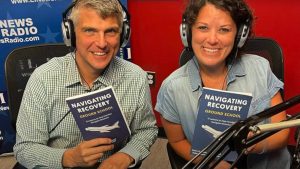
What to expect in early recovery from addiction
It’s inspiring to see someone getting stabilized in early recovery from addiction. People who dedicate themselves to recovery can completely change their lives in a matter of weeks and months. When the time comes for someone to recover from substance use, their life is often in turmoil. Very few people choose to recover before their lives have started to shake apart. Relationships, careers, and family life can all be chaotic.
Getting Stabilized in Early Recovery from Addiction
Some people who dive into recovery start to quickly rebuild and repair their life, but recovery is not a linear path. There is no quick and easy way that works for everyone. Compared to the years spent using, the months that it takes to begin a sober life are hectic, but completely worth it for the trade off.
In early recovery, there are some major benchmarks to celebrate and also specific discomforts to expect.
Weeks 1-3
The first few weeks of recovery are likely to be the hardest. Detoxing from use can be very emotional for the person going through it. Their body and mind may scream for the drug that it is accustomed to having. Relapse feels like the easier way in this timeframe. Emotions are raw and cravings, which are sometimes subconscious, feel very strong.
In the first few weeks, emotions run high and tempers run short. The person trying to recover is realizing how hard recovery can be as well as starting to see the damage they’ve done. Stability feels a long way off and it certainly doesn’t look like it’s worth the fight this early in the process.
This is commonly when people in treatment want to leave. They will use different tactics like complaining about the center, withdrawing, or becoming overly dependent on outside individuals. When people get to week 3 in recovery, it’s the first big hurdle they’ve gotten over.
Week 3 and 4
In the 3rd week, it’s typical to start seeing the “old person” start to emerge. At this point people tend to start enjoying treatment. They make new friends and see hope in their recovery. They become friendlier and more engaged with their treatment. A plan for the future and setting up actions for continued recovery work begins. The changes in these weeks are significant. Families become hopeful and everyone can start to see that this is going to work.
Month 2
Is still a difficult month. There’s most likely been a step down in intensity from a treatment center. The individual may have returned home. While they understand and want recovery, it is still a very emotional time and going from the safety of a treatment center back to work and family can be turbulent.
During month 2, it is important to keep an individual busy with recovery work. Successful people often do multiple things for their recovery each day, like attend 12-step meetings, recovery coaching, or an intensive outpatient program (IOP). By design, we want someone to be busy every minute of the day in month 2.
Month 3
Is a rewarding month. People really start to get back to themselves. Recovery work is now a part of their daily life. They are remarkably stabilized in month 3. Life begins to return to normal.
As people stabilize, they also start to do less recovery work. The intensity of rehab and busyness of month two can’t last forever. In month 3, people graduate from IOP and have the opportunity to settle into a program that can last a lifetime.
There is danger as people stabilize, because of this decrease in recovery work. It’s important to watch that everything that helps the person doesn’t fall by the wayside. Once IOP is completed, it is easy to skip 12-step meetings. In this month and subsequent months, it is important to create a recovery program that provides multiple recovery-based touch points a week.
There is no finish line in recovery
While recovery can’t be a full time job, it does have to remain a key focus in someone’s life. As people stabilize, they start to pull back from programs which makes it easy to transition into doing nothing for recovery. We recover to return to our lives, but it is important to remember what is giving us the ability to lead a full life in the first place.
About Adam Banks
Adam Banks is a certified interventionist and the owner of Adam Banks Recovery. After receiving an MBA from the University of Chicago, Adam built a company acquired by United Health Care. His discipline and attention to detail comes from his former career as an airline pilot, holding an ATP, the FAA’s highest license.
Today, Adam is dedicated to helping others achieve long-term sobriety. His work has guided executives, pilots, and physicians on paths to recovery. Adam brings families together through a loving and inclusive approach.
Adam has authored four books on addiction. His recent work, Navigating Recovery Ground School: 12 Lessons to Help Families Navigate Recovery, educates families on the entire intervention process. He also offers a free video course for families considering an intervention for a loved one.
Adam is available for alcohol and drug intervention services in New York, Long Island, the Hamptons as well as nationally and internationally.




